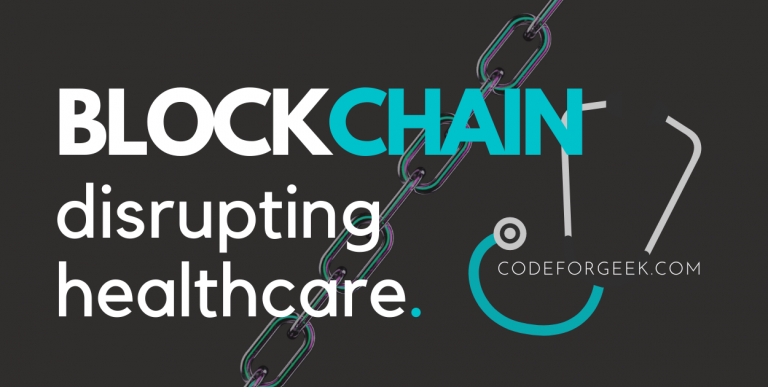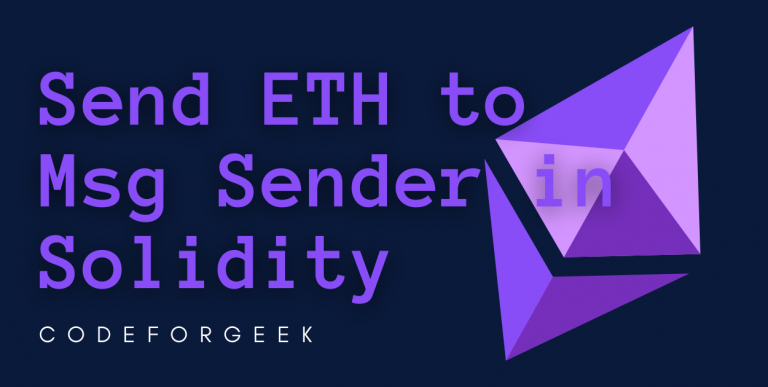New to Rust? Grab our free Rust for Beginners eBook Get it free →
How is Blockchain Disrupting Healthcare?

In this piece, I am telling you how is blockchain disrupting healthcare; a crucial thing to consider.
Unquestionably, blockchain has solved and helped overcome major obstacles in the health sector such as providing drug traceability, secured and safeguarded confidential patient and hospital data, and reduced the exploitation of healthcare customers to a huge extent.
However, blockchain has its own obstacles when it is brought to the healthcare sector. Blockchain is a boon to the healthcare industry, isn’t still been able to solve crucial problems faced by the industry.
This is what we are discussing today – all about the challenges and obstacles of blockchain in healthcare and how is blockchain disrupting healthcare.
Problems in Health Sector: Synopsis
The health sector, for years now, has been facing newer and concerning hardships every year! The impact is faced by both the consumers and healthcare institutes.
Health is wealth!
And it already explains how sensitive this industry is for anyone. New technological advancements are benefitting some parts of this industry but are also a challenge for the older consumers and doctors who find it difficult to adapt to fast-paced devices and technologies.
Let me walk you through in detail the challenges faced by the healthcare industry.
How is Blockchain Disrupting Healthcare?
Blockchain technology poses diverse challenges to different kinds of people in the health sector. I’m going to illustrate the pressing points, people, and areas that are affected by blockchain in this industry.
#1 Use of AI and Advanced Tech
Blockchain networks are created using highly secure, advanced, and artificially intelligent programs and technologies making themselves error-free, non-traceable, and secure to use.
However, not many healthcare institutes can afford such advanced and secure technologies. It becomes difficult to automate minute processes in hospitals using smart and advanced technologies that run on AI and Machine Learning.
The implementation and usage of IoT-based products in modern firms are only expected to rise shortly. This can be detrimental to small firms and hospitals in the industry from enhancing their systems and secure their data.
#2 Increasing Healthcare Costs
Increasing healthcare costs and rising inefficiencies is an old problem in this industry. The extravagant cost of treatment and medication to the consumers is the root of their exploitation.
Blockchain technology is not able to fix the problem of increasing costs of healthcare facilities and inefficiencies that occur due to high costs. Higher costs slow down crucial medical processes like sales, distribution, and purchase of medication.
Poor sections of the society do not have access to good-quality medical facilities and healthcare systems, which ultimately leads to inequality and discrimination of the impoverished in a country.
#3 Limited Data Storage
The data storage systems used by healthcare institutes are limited in size and numbers. It is what limits the patient data storage capacity and ultimately decreases scalability.
There is not enough patient data to be stored on the network. This acts as a challenge for the small healthcare facilities, infirmaries, and hospitals again. Holding scalable data storage in small health institutes can be expensive.
#4 Poor Data Patient Management
Multiple crypto technologies allow reading and computing encrypted codes and data. This is detrimental to patient data security and management.
Protecting and securing data is the fundamental cause of integrating blockchain technology with primitive data systems.
But crypto technologies have homomorphic encryption and zero-knowledge proofs that allow encrypted data to be computed, resulting in poor data management and privacy breach of the patients.
This is where blockchain becomes a challenge for large institutes that hold highly sensitive and confidential data like billing and credit card information, confidential lab testing reports, patient registry and account details, medical reports, employee data, etc.
Such sensitive information is a huge risk and might be misused by hackers or cybercriminals. These loopholes can be an open door for criminals to mistreat peoples’ data and use them in cybercrimes and frauds.
#5 Pharmaceutical Problems and Drug Counterfeit
Drug counterfeit and piracy is a huge challenge faced by the healthcare industry. Blockchain technologies are incapable of identifying counterfeit drugs in a system.
According to the World Health Organization (WHO) in 2011, 50% of the drugs sold on the Internet are counterfeit. It’s been a decade now and every year the percentage of drug counterfeit cases is only rising.
Blockchain’s incapability and poor tracking system are growing to become a challenge for the giant healthcare industry worldwide.
Blockchain has shined as technology in every industry for a wide variety of reasons. Blockchain in healthcare, is what we are discussing today, its prominent applications and use cases.
The advancement of technology is a need for basically any industry, especially in the modern world today. The healthcare industry is showing a burgeoning demand for changes and advancements technologically to equip them and provide better services.
Today, we are interested in discussing blockchain in healthcare, the technology that will revolutionize this industry. Blockchain will modify how doctors, physicians, and other health professionals access patients’ or clients’ data, how clinical researches will be conducted, and influence other areas of healthcare.
In this article, I am going to conquer the use cases and applications of blockchain in healthcare. This piece will also throw light on how blockchain is impacting the industry.
Blockchain Applications in the Healthcare Industry
There are many useful applications of blockchain in healthcare that have sprung for a few years as the technology is seeing faster advancements. The technology is solving problems and improving the quality of services in the industry for real.
Players in this industry are now able to take a patient-centric approach to maximize profit which is a win-win for everyone. Blockchains have undeniably impacted the industry largely and this seems to be substantial in the future.
Blockchain Use Cases in Healthcare
Let us get started by exploring some use cases and applications of blockchain in healthcare.
#1 Patient Data Management
Undeniably, any data on the internet is vulnerable to data breaches and insecurities. The healthcare industry has to do with the sensitive patient or client data, financial reports of the healthcare institute, and even confidential lab test data reports.
Patient data of a health institute may include sensitive billing information, patient details, records of treatment and medication, etc. all of which are highly vulnerable to data breaches and attacks.
It is extremely crucial to secure such sensitive information in an unshakeable vault that is free from any possible data breaches and must be accessible only by the right people.
Solution
The good news is, we have blockchain to work out this problem. Data stored on blockchain technologies are stored in error-free, highly secure, and decentralized database systems that are safe from tampering and alterations.
“With decentralization in place, data is allowed to be stored everywhere across the blockchain, making it faster and highly secure and unquestionably the better way of data storage.
Blockchain lets us store information in numerous locations. Thus, making it difficult to tamper. In this technology, whenever a new block is created into the blockchain, a copy of the information is sent to all computers.” – CodeForGeek
Now with blockchain in the healthcare sector, health institutes will be able to store confidential and sensitive patient and medical data on the blockchain network without losing sleep.
#2 Drug Supply Chain and Traceability
It is necessary to know where your drugs are coming from because transgressions such as drug counterfeit, illegitimate suppliers, and drug tampering are vast in the industry.
As a consumer, you have the right to know how your medicines manufacture and who supplies them.
Solution
The decentralized blockchain technology guarantees the fully transparent and error-free shipping of drugs from legitimate suppliers.
You can track a drug that interests you, from the time it was first created, till the time it reaches a consumer. The system provides completely timestamped information of the manufacturing company, supplier’s data, distributers’ data, locations it has been, and more.
It helps make drug traceability transparent and free of violations.
#3 Securing Health Insurance and Billing
Payments and billing in the healthcare industry can be backbreaking for some payers. This is due to the domination of sizeable institutes that provide overpriced healthcare services and incorporate unexplained charges while billing the patient.
This practice leads to over-exploitation of healthcare consumers that are seeking good quality health services. Moreover, health insurance providers equally exploit the consumers by leisurely lengthening to process the claim.
In some countries, the claims go up to taking months to be processed. The reason being, delay in receiving the patient data required to process the claim. Or the insurance provider involving in illegal or corrupt activities.
Solution
Fortunately, blockchain holds the ability to bridge these gaps and seal all the possible loopholes in the system. A healthcare institute that uses blockchain technology cannot overcharge the patients or exploit the consumers for personal gains in any way.
Health insurance services will improve by fastening the process as complete patient data gets transferred to the insurance company. Nonetheless, data on a blockchain network system is free from tampering and data breaches. So, there is no question about worrying about trickery taking place.
Conclusion
Blockchain being a boon to the healthcare industry, hasn’t been able to solve some crucial problems faced by the industry. This is what we have conquered in this piece – all about the challenges and obstacles of blockchain in healthcare and how is blockchain disrupting healthcare.






